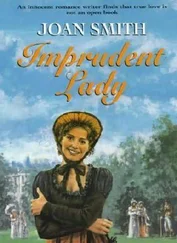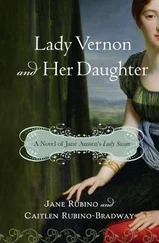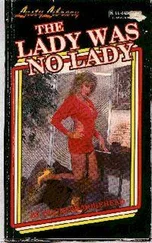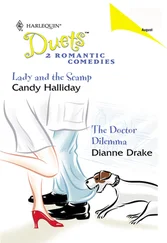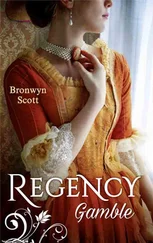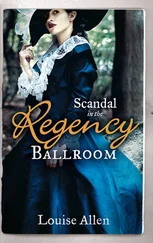“ ‘If the weather’s good,’ he said,” April put in.
“Well, if you catch one, bring him home,” Mark said.
“Those two are gonna be G-men,” Fanny said. She sat in bright, redheaded splendor under the bold autumn foliage of the tree, grinning approval at her brood. A trained nurse who supplemented the meager salary Carella could afford by taking night calls whenever she could, she had been working for the Carellas ever since the twins were brought home from the hospital.
“Daddy, what do crooks look like?” Mark asked.
“Well, some of them look like Fanny,” Carella said.
“That’s right, teach them,” Fanny said.
“Are there lady crooks?” April asked.
“There are lady crooks and men crooks, yes,” Carella said.
“But no chi’drun,” Mark said. He always had difficulty with the word.
“Children,” Fanny corrected, as she invariably did.
“Chi’drun,” Mark repeated, and he nodded.
“No, no children crooks,” Carella said. “Children are too smart to be crooks.” He put the twins down and said, “Fanny, I brought you something.”
“What?”
“A swear box.”
“What in hell is a swear box?”
“I left it in the kitchen for you. You’ve got to put money in it every time you use a swear word.”
“Like hell I will.”
“Like hell she will,” April said.
“See?” Carella said.
“I don’t know where they pick it up,” Fanny answered, shaking her head in mock puzzlement.
“You feel like giving us the night off?” Carella asked.
“It’s Saturday, ain’t it? Young people have to go out on Saturday.”
“Good,” Mark said.
“Huh?” Carella asked.
“We’re young people.”
“Yes, but Fanny’s going to feed you and put you to bed, and Mommy and Daddy are going to a movie.”
“Which one?”
“I don’t know yet.”
“Go see a monster fimm,” Mark said.
“A what?”
“A monster fimm.”
“Film?”
“Yeah.”
“Why should I? I have two monsters right here.”
“Don’t, Daddy,” April said. “You’ll scare us.”
He sat with them in the yard while Teddy showered and dusk claimed the city. He read to them from Winnie the Pooh until it was time for their dinner. Then he went upstairs to change his clothes. He and Teddy had a good dinner and saw a good movie. When they got home to the old Riverhead house, they made love. He leaned back against the pillow afterward and smoked a cigarette in the dark.
And somehow Kling’s loss seemed enormously magnified.
728 Peterson Avenue was in the heart of Riverhead in a good middle-class neighborhood dotted with low apartment buildings and two-story frame houses. Ralph Townsend lived there in apartment number 47. At 9:00 on Sunday morning, October 15, Detectives Meyer Meyer and Steve Carella rang the bell outside the closed door and waited. Kling had told them the night before that Claire’s father was a night watchman, and he’d advised them to call at the apartment around 9:00, when the old man would be returning home from his shift and before he went to bed. As it was, they caught Townsend in the middle of breakfast. He invited them into the apartment and then poured coffee for them. They sat together in the small kitchen, with sunlight streaming through the window and burnishing the oilcloth on the table. Townsend was in his middle fifties, a man with all his hair, as black as his daughter’s had been. He had a huge barrel chest and muscular arms. He wore a white shirt, the sleeves rolled up over his biceps. He wore bright-green suspenders. He also wore a black tie.
“I won’t be going to sleep today,” he said. “I have to go over to the funeral parlor.”
“You went to work last night, Mr. Townsend?” Meyer asked.
“A man has to work,” Townsend said simply. “I mean... well, you didn’t know Claire, but... well, you see, in this family, we thought... her mother died when she was just a little girl, you know, and... we... we sort of made up between us that what we owed to Mary — that was her name, Claire’s mother — we made up that what we owed to Mary was to live, you see. To carry on. To live. So... I feel I owe the same thing to Claire. I owe it to her to... to miss her with all my heart, but to go on living. And working is a part of life.” He fell silent. Then he said, “So I went to work last night.” And he fell silent again. He sipped at his coffee. “Last night I went to work, and today I’ll go to the funeral parlor where my little girl is lying dead.” He sipped at the coffee again. He was a strong man, and the grief on his face was strong, in keeping with his character. There were no tears in his eyes, but sorrow sat within him like a heavy stone.
“Mr. Townsend,” Carella said, “we have to ask you some questions. I know you’ll understand...”
“I understand,” Townsend said, “but I’d like to ask you a question first, if that’s all right.”
“Sure,” Carella said.
“I want to know... Did this have anything to do with Bert?”
“What do you mean?”
“I like Bert,” Townsend said. “I liked him the minute Claire brought him around. He did wonders for her, you know. She’d been through that thing where her boyfriend was killed, and for a while she... she forgot about living, do you know what I mean? I thought... I thought we’d agreed on... on what to do when her mother died, and then... then this fellow she was going with got killed in the war, and Claire just slipped away. Just slipped away. Until Bert came along — and then she changed. She became herself again. She was alive again. Now...”
“Yes, Mr. Townsend?”
“Now, I... I wonder. I mean, Bert’s a cop and I like Bert. I like him. But... did... did Claire get killed because her boyfriend is a cop? That’s what I’d like to know.”
“We don’t think so, Mr. Townsend.”
“Then why did she get killed? I’ve been over it a hundred times in my mind. And it seems to me that... maybe somebody had something against Bert and he took it out on Claire. He killed Claire to get even with Bert. Just because Bert’s a cop. Now doesn’t that seem to make sense? If anything in this whole damn thing makes sense, doesn’t that seem to make the most sense?”
“We haven’t overlooked that possibility, Mr. Townsend,” Meyer said. “We’ve gone back in our files over all the major arrests Bert made. We’ve eliminated those which were petty offenses because they didn’t seem to warrant such massive retaliation. We’ve also eliminated any men or women who are still in prison, since obviously—”
“Yes, I understand.”
“—and also those who were paroled more than a year ago. We figure a vendetta murder would have been committed as soon after—”
“Yes, I see, I see,” Townsend said.
“So we’ve rounded up recent parolees and men who’ve completed shorter terms — at least, all those for whom we have known residences. We’re still in the process of questioning these people. But, quite frankly, this doesn’t seem to be that kind of a murder.”
“How do you know?”
“A murder case has a feel to it, Mr. Townsend. When you’ve worked enough of them, you develop a sort of intuition. We don’t think Claire’s death was connected with the fact that Bert is a cop. We may be wrong, but so far our thinking is going in another direction.”
“What direction is that?” Townsend asked.
“Well, we think the killer was after a specific person in that shop, and that he got the one he was after.”
“Why couldn’t it have been Claire? And why couldn’t...?”
“It could have been Claire, Mr. Townsend.”
Читать дальше
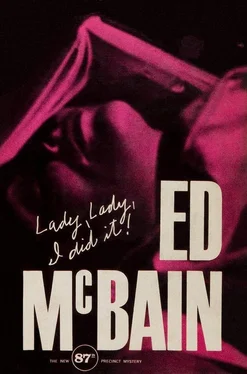
![Дэвид Лоуренс - Lady Chatterley's Lover [С англо-русским словарем]](/books/26613/devid-lourens-lady-chatterley-s-lover-s-anglo-thumb.webp)
